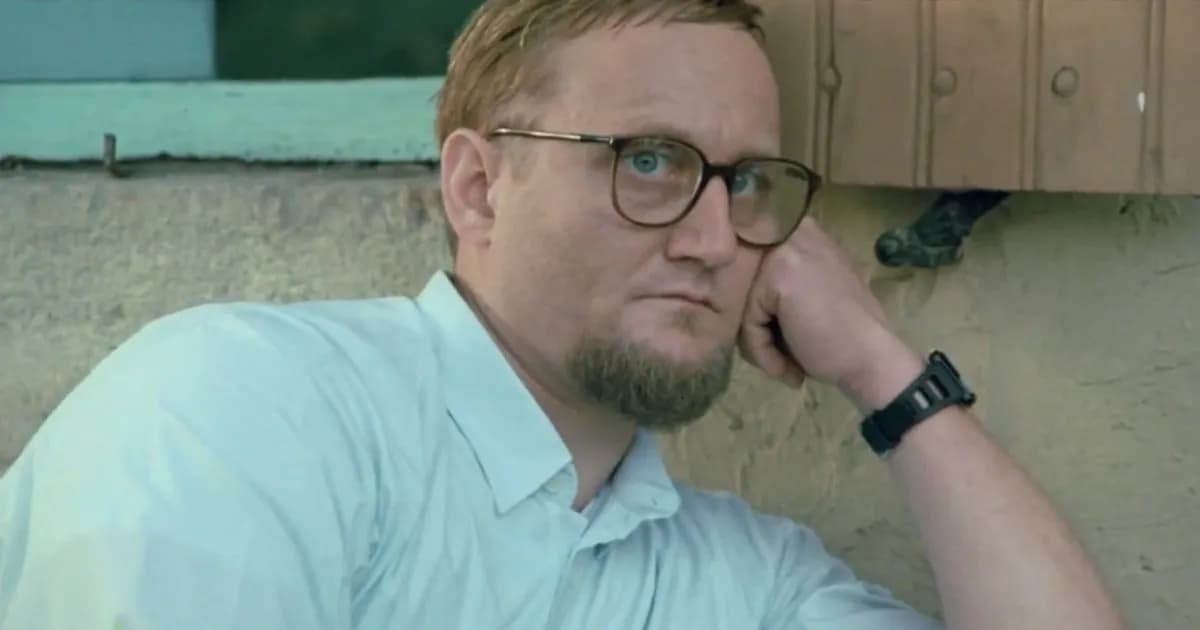The Vanishing (George Sluizer, 1988) Review
A hero is capable of terrible deeds.

There are films that prove that the scariest ones do not come with the horror label on the cover. Funny Games is the first work of this group that comes to my mind, along with The Vanishing (also known as Spoorloos in Dutch), which is based on the book The Golden Egg by Tim Krabbé. Both feature the most clinical killers I’ve ever seen in the history of cinema, who have different underlying motives for their crimes. In the case of Raymond (Bernard-Pierre Donnadieu), the antagonist of The Vanishing, the urge to kill is born in contrast to the honorable act of saving a little girl from drowning. By his own account, his daughter was bursting with pride at such a heroic act, so he felt that her admiration was worthless unless he could prove himself capable of doing something evil, since black cannot exist without white.
The title is an apt description of the entire plot, as it deals with the disappearance of Saskia (Johanna ter Steege), Rex’s (Gene Bervoets) girlfriend. This terrible event has left such a mark on him that even 3 years after that fateful day, he’s still hoping to find her. This scenario is the vehicle to introduce us to Raymond and, thanks to the naturalistic storytelling that George Sluizer employs, to delve into the mind of the most methodical killer I’ve ever seen in a film. He’s an intelligent, well-dressed, well-spoken man with a family and a home who works as a chemistry teacher. He doesn’t even stain himself with blood for his crimes, but as intelligent as he is, he is not portrayed as an infallible criminal. He fails. A lot. In fact, the kidnapping of Saskia happened by chance when Raymond was about to retire for another day without having caught his martyr for his cause. Everything is so believable and so well acted that it seems frighteningly real and plausible, which makes the film all the more terrifying.
What’s even more horrifying is the fact that there are real killers out there who, like Raymond, will never be caught for their terrible deeds. The Vanishing doesn’t end happily with Saskia still alive, or at least with Raymond being punished for his crimes. Actually, that would spoil all the calculated blocks that make up the whole structure in which the plot lies, since there is not a single piece of evidence that could lead Rex to incriminate Raymond. There isn’t a moment in the story that would make us think that Rex could have done more to catch the culprit. If anything, we might think he could have done more with the letters that Raymond sent him to meet him at the cafe, but what could he have done? Call the police? Would they have changed anything at all? Raymond would still be safe on his balcony, laughing at Rex’s futile efforts to catch him.
The best plans can be wiped out at any moment by what we call fate.
There’s no linear narration of the events, as the film is divided into two story arcs that eventually converge into one. On the one hand, we see the disappearance of Saskia from Rex’s point of view, from which we can feel the increasingly anxious situation he has to endure. On the other hand, we see the frivolous and frustrated kidnapping attempts of Raymond. We also see time jumps into the future, where Rex is with his apparent new girlfriend Lieneke (Gwen Eckhaus), who is an irrelevant character in the plot, adding rather superfluous moments to the footage. Both plots are finally brought together by the meeting of the two characters, where further details of the story are revealed through their conversations. Even if the murderer is revealed fairly soon, it isn’t detrimental to the development of the plot, because the important thing here is to slowly dismantle the mysterious, ruthless and cynical aura of Raymond, which finally leads to the revelation of what he did to Saskia and how Rex finds out about it.
In a delirious attempt to learn Saskia’s fate, Rex volunteers to share her fate by going against what is predestined, accepting Raymond’s offer to drink a sleeping pill dissolved in coffee in order to experience for himself what happened to Saskia. When he wakes up, he lights his lighter and realizes that he has been buried alive, causing him to laugh and scream hysterically. When the flame of Rex’s lighter goes out, any glimmer of hope vanishes, fading into a faint memory of seeing the light at the end of the tunnel, where Saskia was still alive. What was once a comfortable reality now becomes a desperate, mute cry for hopeless hope.
It’s certainly difficult to make a film that manages to deal with such a recurring theme in film as kidnapping without feeling manipulative or presenting the antagonist as a figure who can only be defeated by the powerful, morally superior main protagonist who rescues the girl and makes the film end with a happy conclusion to the conflict. However, in this exercise of exploring a psychopathic mind, George Sluizer knows that the world is flawed and far removed from the perfect world that many films fraudulently try to portray.
Simply put, The Vanishing is the best and most realistic film I’ve ever seen on such a complicated subject.